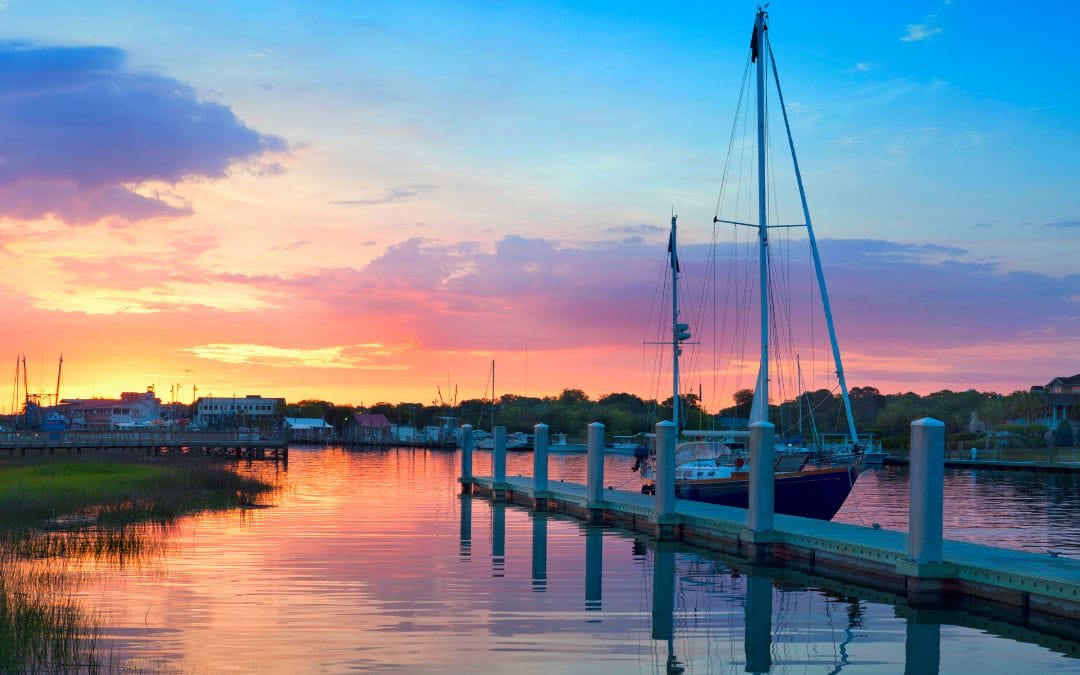Nestled just a few miles from the scenic coastal region of Hilton Head Island, not only is Bluffton, South Carolina, a choice travel destination but also, an excellent place to retire. Forbes named it among the top retirement locations in the U.S., and it doesn’t take much effort to see why. Given this town’s affordable cost of living, access to healthcare, low crime rate, walkable layout and favorable tax laws, Bluffton lends itself to a relaxed and downsized retirement life.
In addition, its resort community vibes and proximity to the Atlantic Ocean make Bluffton ideal for recreational amenities such as 18-hole golf courses, castanet or deep-sea fishing, and boat or yacht charters. For older adults, there are also numerous options for high-quality and inclusive assisted living in Bluffton, SC.
So if you’re looking for assisted living communities near the Bluffton area, either for yourself or a loved one, below are some considerations to take into account during your search.
What are the monthly living expenses?
One of the first steps to finding the right community is to work out your monthly budget. When you determine how much you can spend on assisted living, remember that most communities are all-inclusive. The monthly expense covers all housing costs, including maintenance, meals, care, and often transportation and regular cleaning services. When speaking to communities, families can experience sticker shock at the cost, however, it’s often more affordable than other options when you compare the numbers and consider all the services and amenities.
What’s more, aging in place in assisted living offers much more security and resources than individuals living on their own.
It’s important to note, while Medicare covers doctor visits, hospital and skilled nursing care, specialist referrals, medical tests, surgeries and equipment, and in some cases, prescriptions, it will not cover residential costs of assisted living.
What are the available programs, services and amenities?
When meeting with staff members from the assisted living communities in Bluffton, make sure to inquire about all the programs and amenities offered. Come prepared with a list of questions, for example:
- What dining plans and menu options are available?
- How are the suites designed and what furniture is included?
- Are there cleaning services available?
- Can you explain how health care is handled and who’s on staff to facilitate care?
- Are there shared spaces, such as sitting rooms, living rooms and outdoor areas?
- Is there accessible transportation available?
- What type of safety features do you offer?
- Are there any wellness, exercise, leisure and enrichment activities on-site? Can we see a sample calendar?
- What about mental health services for depression or anxiety, or memory care for the development of Alzheimer’s and dementia?
Because you’re essentially interviewing potential new homes for you or your loved one, you want to ensure the overall experience and culture align with your needs.
How does the higher care transition process work?
As health conditions evolve, you might need to move between assisted living and other medical establishments, so it’s important to verify the process is smooth, efficient, calm and safe. When searching for assisted living in Bluffton, SC, make sure to ask about transitional plans, if residents need to go to the hospital or receive specific therapy, for example. If the community also offers memory care, enquire about that transitional process.
While you never hope for health-related situations to arise, you do want to know that the community has plans and processes in place.
Assisted Living in Bluffton, SC
The Lowcountry, as we call it, is an ideal spot to spend those “golden years” of retirement, and there are many choices when it comes to assisted living in Bluffton, SC, as well.
Here at Vineyard, we know just how much of an impact this decision can make on your overall quality of life. So we do all that we possibly can to curate an environment, amenities, services and resources to meet all of your unique needs.
Refer to some of our other resources to help plan long-term care for you or your loved one:

